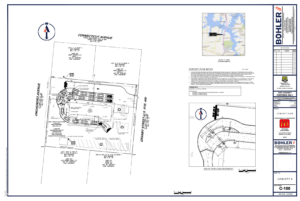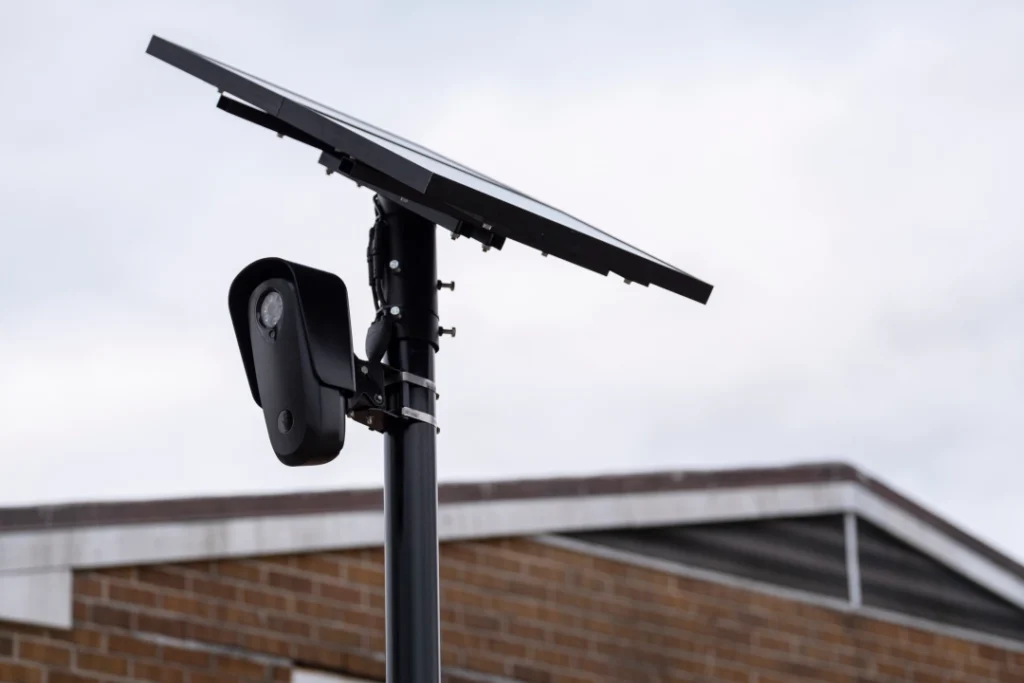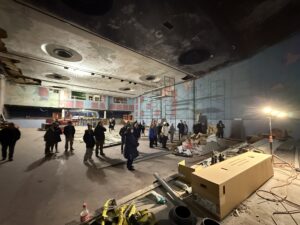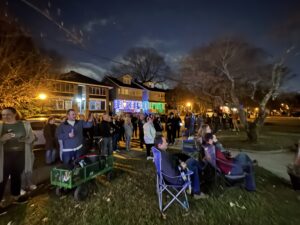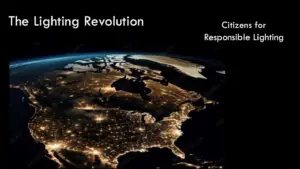Information from The Virginia Pilot
Norfolk installed 172 automatic license plate reading cameras last month that can track comings and goings throughout the city.
License plate cameras have been around for a while. But what distinguishes these cameras, made by Flock Safety, is their use of machine learning to pick up on details about a car other than its license plate, as well as the nationwide database Flock is building out of its customers’ information.
Law enforcement and city officials in Norfolk see these advanced capabilities as a boon to public safety, but Norfolk residents and state lawmakers alike have sounded off about privacy concerns over the massive amount of data the cameras capture.
In the month the cameras have been operational, the Norfolk Police Department hasn’t completed or released a formal policy on use and storage of data that the cameras collect. A police spokesperson said a policy is in the works.
To understand how the cameras are used and the parameters around the department’s use, The Virginian-Pilot spoke with a police lieutenant who oversees the camera program and a Flock company representative.
How do they work?
The cameras, also called automatic license plate readers or ALPRs, are motion activated and capture still images, not video, according to Flock spokesperson Holly Beilin. The cameras read and record the license plate and document details about the make, model and color of the vehicle, as well as alterations, like a roof rack, bumper sticker or damage to the car.
Images are uploaded remotely to an encrypted cloud, where they are stored for 30 days. Because each vehicle is cataloged according to several individual characteristics, its movements can be tracked in detail.
In Norfolk, all sworn officers have access to the database compiled by Flock Cameras and can search for vehicles associated with crimes.
Flock Safety also allows its users to create hotlists — lists of license plates or vehicles associated with a crime. When a vehicle on a hotlist is logged by a Flock camera, officers get an alert.
The cameras will be an integral part of the Real Time Crime Center, which Norfolk Police Lt. Charles “Mike” Thomas oversees.
The center, which the City Council allocated $532,000 toward in the fiscal 2024 budget, is slated for completion in the fall and will be on the eighth floor of City Hall. It will synthesize data from live feed video cameras, Flock cameras and some privately owned cameras that share data with the police. Information like vehicle descriptions, background information about criminal suspects or victims, live feeds of video, and even how people involved in crimes know each other will be sent to officers in the moment.
Where are they?
Flock installed 172 cameras across the city. The black slender cameras are unique, and fairly easy to spot. But the police department has not disclosed their locations. The Pilot is awaiting a response to a Freedom of Information Act request to learn where the cameras are.
However, police described the strategy for camera placement.
“It would be difficult to drive anywhere of any distance without running into a camera,” Police Chief Mark Talbot said in a May presentation.
Cameras were placed in neighborhoods with higher crime rates and 911 calls, as well as entrances and exits to the city, Thomas said.
“In those areas, we tried to place them such that if you commit a crime, the hope is that you would not be able to leave or come in from those areas without having a Flock picture, a Flock hit,” Thomas said.
The city also shares data with Norfolk Housing and Redevelopment Association, which purchased an additional 20 cameras.
Who can search the database?
When police departments or private entities like homeowner associations buy the Flock cameras, they’re not only getting access to the technology; they’re also subscribing (for $2,500 a year) to Flock’s nationwide database that compiles information from the communities the cameras are in.
The data Flock cameras collect is not available automatically to all Flock customers, Beilin said. A private neighborhood association in Colorado, for example, wouldn’t be able to see data collected in Norfolk, and vice versa. But the Norfolk Police Department can grant access selectively to other departments, or have a one-way agreement where officers can see information collected by privately owned cameras, according to Thomas.
“Every jurisdiction that has Flock is able to share data with other jurisdictions and also see data that’s being shared with them,” Thomas said.
Police departments have to approve each other’s access the first time they request to share data, but after that request is approved, data can be shared freely, Thomas explained. He declined to say to which jurisdictions Norfolk Police Department has granted or gained access.
According to Talbot’s presentation to council in May, Flock cameras are in operation in Chesapeake, Suffolk, Hampton, Newport News, Isle of Wight and Franklin. They’re in the works for Virginia Beach and Portsmouth.
Norfolk Police Department owns the data its Flock cameras collect. Flock Safety can’t sell or share data with third parties.
The Flock system allows the department to set up roles for patrol officers and investigators with different levels of permission for accessing and managing the database. Thomas said patrol officers can receive alerts and search the database, but can’t add vehicles to the hotlist. Only investigators can.
“Within the search, you have to put in why you’re searching for anything,” Thomas said. “And it is for law enforcement purposes only. It’s going to work similar to any other database that we have. It can’t be used for personal reasons.”
Thomas said as the administrator, he can see hotlists and user searches. Although Flock images are deleted after 30 days, Beilin said user audit logs last forever.
As of right now, Thomas said, there are no guidelines for how often user searches or hotlists will be reviewed.
How do hotlists work?
Another feature of Flock Safety is the ability to create hotlists — of license plates or vehicles associated with a crime that police can track.
“If another jurisdiction has a homicide, and they have a vehicle of interest, or a person who’s wanted for that homicide, they can put that vehicle into what they call a hotlist. And if we share data with that jurisdiction, it’ll pop up as a hotlist alert and allow our officers to try to track that vehicle down,” Thomas said. “It’s really as easy as it gets.”
For an investigator to enter a vehicle into the hotlist, a crime report needs to be associated with it, which Thomas said acts as an audit control.
“Obviously this isn’t a people-based program, so you can’t put people in (the hotlist),” Thomas said.
But vehicles registered to certain people can be added to the hotlist.
“We had a sexual assault suspect that we couldn’t locate, but he was in the hotlist,” Thomas said, describing how the cameras have been used so far. “Within 24 hours of being in the hotlist, he was arrested in another jurisdiction.”
Information associated with Amber Alerts, stolen vehicles or national databases like the National Crime Information Center can also trigger local alerts.
Why is data stored for 30 days?
Flock deletes images in its database 30 days to the second after they are captured. That’s a default time frame that can’t be removed or extended, Beilin said.
But privacy advocates such as the American Civil Liberties Union have suggested use policies that require deletion of images after three days. New Hampshire state law mandates deletion after three minutes if a license plate doesn’t trigger an alert.
License plates can be checked against watchlists in seconds, and deleting data quickly means benign commutes or errands aren’t being tracked.
But Norfolk plans to retain the data for 30 days. Police say they intend to use the system not just to spot hotlisted vehicles, but also to review old images to track vehicle movement after a crime is reported. In that scenario, Thomas said “three minutes is obviously unusable.”
“Thirty days is what we believe to be a proper amount of time to have somebody in (the database),” Thomas said, adding that police are able to go back and search for a vehicle if a crime is reported after the fact.
Lawmakers voiced different levels of support for the cameras.
State lawmakers took issue last month with a decision by the Criminal Justice Services Board to authorize localities to use American Rescue Plan Act grants to purchase automatic license plate readers.
Several said the board’s decision was a direct contradiction of the legislature’s decision to kill multiple bills this session that would have expanded use of license plate readers. The main concerns cited were privacy issues.
With the surveillance net widening in the commonwealth, two Norfolk delegates said they have concerns about balancing the crime fighting benefits of the cameras with residents’ privacy rights.
Del. Angelia Williams Graves, D-Norfolk, said she believes the cameras could be a helpful tool for police, especially for stolen vehicles. But she doesn’t support constant surveillance.
“I’m not a fan of having them on all the time; I believe there needs to be some balance,” Graves said, explaining she thinks the license plate readers should only be activated during specific incidents of concern.
Graves said legislators will need to consider potential rules regarding the use of the cameras when the General Assembly convenes next year.
“I would like to see some guardrails on it to make sure the information obtained is being utilized in a proper manner,” she said.
Del. Jackie Glass, D-Norfolk, said in an email she is preparing legislation that will mandate data collected by the cameras remains encrypted except under warrant or “narrowly tailored exigent circumstances.”
The Pilot also reached out to Mayor Kenny Alexander and all seven city council members to gauge their support for the cameras and to ask if they have concerns about the Flock cameras being implemented without a use and privacy policy in place.
Council member Courtney Doyle said, “I think they should absolutely be in operation.”
Former interim police chief Michael Goldsmith spoke about the Real Time Crime Center and the investment in Flock Safety cameras during the fall council retreat on Oct. 7 and at a council work session Dec. 13.
Talbot’s May presentation, Doyle said, was an update on something the council knew was in the works.
“I’m very comfortable with the implementation of the Flock cameras,” Doyle said.
Council member John Paige saw the cameras as a necessary compromise between safety and privacy.
“Public safety and what it means is changing,” Paige said. “People are more violent, quicker to lose their cool. And as we move forward, we’re all going to have to make sacrifices to be safe.”
But he added, “I don’t want to implement anything without preparing the people, explaining to people what it is and what it does.”
Council member Andria McClellan expressed skepticism about the cameras and said she wanted more information about how the cameras are used regionally and what state-level regulations might be in place.
Other council members did not respond to requests for comment.
Staff writer Katie King contributed to this report.
Cianna Morales, cianna.morales@virginiamedia.com
